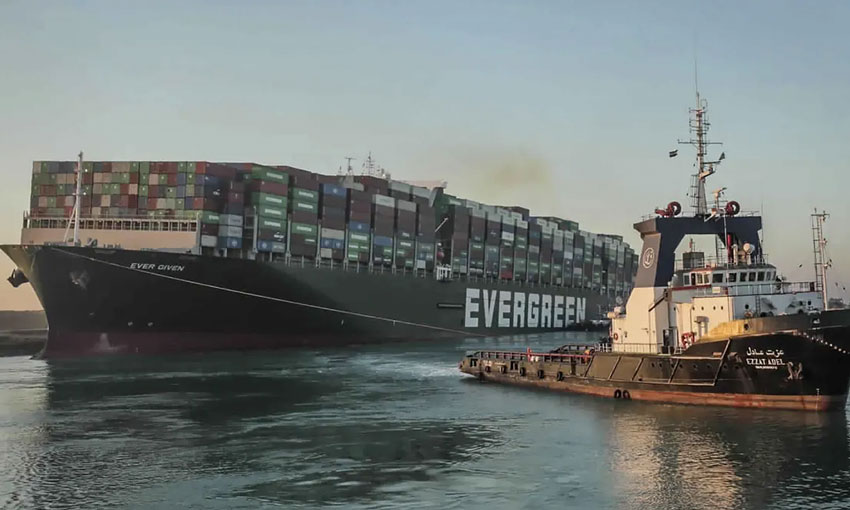EVER Given was earlier today pulled off the banks of the Suez Canal and moved north to the Great Bitter Lake, where it remains for inspection.
Suez Canal Authority (SCA) chairman Osama Rabie said: “The ship was ready for limited navigation after an initial inspection and not a single container was damaged, but a second investigation will be more precise and if it was affected it will show”.
The vessel’s technical manager, Bernhard Schulte Shipmanagement (BSM), confirmed the vessel was safely re-floated at approximately 1500 local time on 29 March.
BSM said a crew of 25 Indian nationals remains aboard the vessel. The company said they are safe, in good health, and have been working closely with all parties involved to re-float the vessel.
BSM thanked all involved in the re-floating operation, including the crew, “who worked tirelessly to free the vessel and to restore navigability in the Suez Canal”.
At present, vessels are passing through the canal. Mr Rabie said the SCA estimates the backlog can be cleared in three and a half days.
Meanwhile, Maersk has turned around two of its vessels (Madison Maersk and Merete Maersk) headed to the Cape of Good Hope, directing them instead to the Suez Canal. This means the line has 13 vessels that are still routed around the southern tip of Africa.
Boskalis subsidiary Smit Salvage was brought in to manage the re-floating operation. The company said about 30,000 cubic metres of sand was dredged to help free Ever Given. Eleven harbour tugs and two powerful seagoing tugs, Alp Guard and Carlo Magna, were deployed.
Tugs are golden
The International Transport Workers Federation welcomed the news of Ever Given’s re-floating.
ITF general secretary Stephen Cotton said the operation has demonstrated the importance of tugboats.
“There will be dozens of ships across the world that are right now beached, stuck or floating without engine power that are being assisted by tugboat and towage workers working ‘round the clock,” he said.
“They should take pride in how their profession has helped resolve this situation in the world’s busiest waterway. I hope these workers get the recognition they deserve.”
Investigations into fatigue necessary
ITF seafarers’ section chair David Heindel said a full investigation was needed to examine if crew fatigue or other issues had been a factor in the events surrounding the vessel’s stranding, as it has been in other maritime accidents.
“Let’s not rush to judgement until all the facts are laid bare. An open and transparent investigation into the circumstances surrounding this event should be conducted, drawing on necessary input and expertise from the crew and their unions. Of course, the industry needs to learn any lessons that emerge from this incident,” he said.
“Too often, seafarers are unfairly blamed for incidents at sea. When proper investigations are conducted we are able to stand back and see the systematic factors which drive bad outcomes.”
Mr Heindel said he oped this highly publicised event will shed a light on the tremendous sacrifice seafarers make every day.
“Seafarers are heroes, and they need our support – whether they are stuck on the Suez, or whether they are delivering 90% of everything at your local port and over contract on their ship,” he said.
International Chamber of Shipping CEO Guy Platten said the Suez Canal incident has reminded governments and markets just how important global shipping is to the supply chains.
“Seafarers are continuing to work to maintain global trade, through exceptional circumstances and the Suez incident is only going to exacerbate the already dire crew change crisis,” he said.
“Seafarers must not be forgotten as soon as the canal is open again, and we call on governments to urgently act on these important recommendations.”

